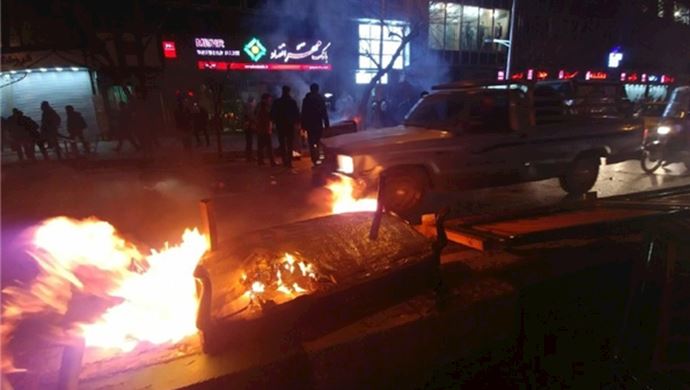
An Iranian resistance group has published government documents it claims prove the Iranian regime was aware of potential coronavirus infections in January, long before acknowledging cases there.
Officially, the Iranian regime has said the first cases of the COVID-19 virus were discovered Feb. 19, but the National Council of Resistance of Iran unveiled documents it says are copies of mission reports from the government’s National Emergency Organization.
One of the documents, which features the emblem for the Iranian Health Ministry, is dated Jan. 28 and includes the name of a patient who the document claims works at the Chinese embassy.
“He is 33 years old, with coughing, and symptoms of cold. He says he works at the Chinese Embassy (in Tehran), and his colleagues have had symptoms of Coronavirus. He is hospitalized. Vital signs checked. Neurology testing is normal. Initial action was taken, and he was transferred to the medical center,” the document reads, according to a translation by the resistance group.
Two other documents purport that a 37-year-old woman and another 33-year-old man, both employees at the Chinese embassy, were also hospitalized.
The documents follow another batch of medical records that were released by the group this week. Those records, also claiming to be sourced from the National Emergency Organization, appear to show multiple other cases of the coronavirus in early February.
“[Name redacted], 30, suspected of Coronavirus infection, was transferred to emergency section for high fever at Imam Khomeini Airport, and from there to Yaftabad Hospital, on February 7, 2020. The patient was diagnosed to be infected to Coronavirus at the border point at Imam Airport. After coordination, the patient was admitted to Yaftabad Hospital. He was traveling to Dubai,” a report dated Feb. 7 read.
The resistance group, which has followers inside the country who are subject to arrest, contends that one of the reasons why the regime might not have disclosed cases was because of the parliamentary elections held on Feb 21.
The Iranian regime had worked to try and get a high voter turnout, despite calls for boycotts. The Guardian Council of the Constitution had the authority to decide who got put on the ballots and used its power to reject reformist candidates.
The elections and the coronavirus pandemic came at a time of tension between the Iranian government and the Iranian people.
In November, hundreds of Iranians were killed as protests rocked the nation. Another wave of protests came in January after the regime admitted to shooting down a commercial airliner, killing 176 people on board. Iran had previously lied about the incident, which killed dozens of Iranians, sparking anger at the regime. There were also protests across the world to demonstrate in solidarity with the Iranians, including in Washington, D.C.
In a statement to the Washington Examiner, Mohammad Mohaddessin, chairman of the Foreign Affairs Committee of the National Council of Resistance of Iran, said the documents prove a “criminal cover-up” by the Iranian government.
“These documents show that contrary to the regime’s lies and cover-up, officials, including [Supreme Leader] Ali Khamenei and his president Hassan Rouhani knew of the spread of the virus to Iran at least three weeks before making it public,” Mohaddessin said. “This makes it palpably clear that the safety, health, and lives of the Iranian people have no value as far as the religious fascism ruling Iran is concerned.”
“Rouhani and other regime leaders are directly responsible and must face justice,” he added.
According to Iran, there have been more than 50,000 cases of the coronavirus and at least 3,160 deaths, though the resistance group claims the death toll is much higher, with more than 14,700 deaths in 237 cities as of Tuesday.👉 Read More









